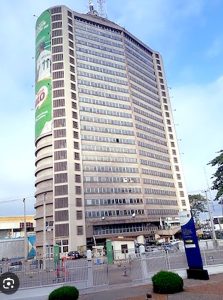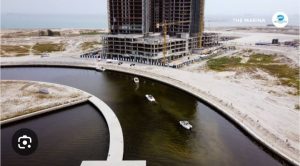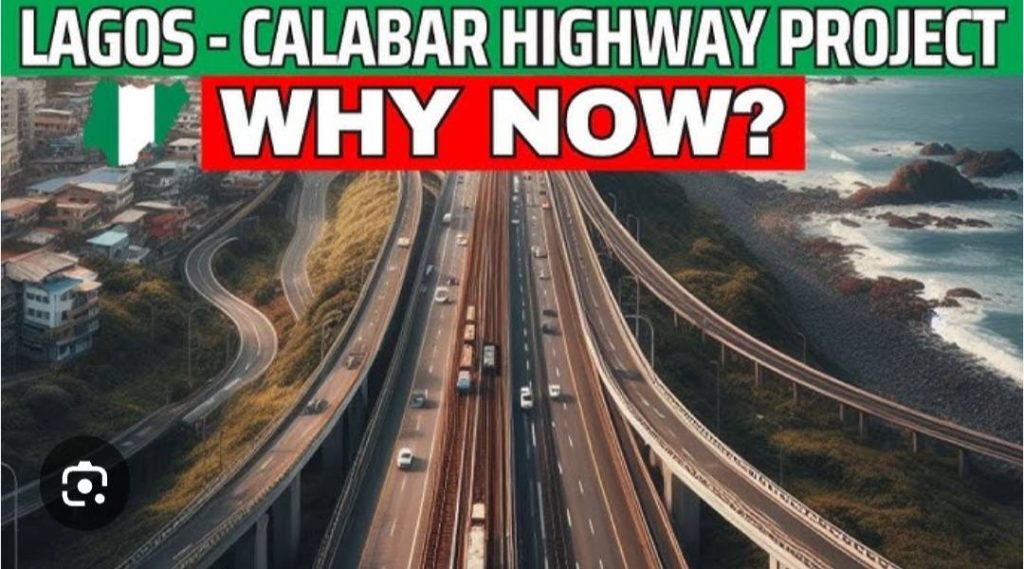By Kayode Adebiyi
History has always been unkind to visionary leaders—at least in their own time. They dream in decades while their people struggle in days. They build for generations while their critics complain in the moment.
But if history teaches us anything, it is that nations that succeed are led by those bold enough to think beyond present discomfort and into a future of possibility.
My last trip back home for my father’s funeral rites was heartwarming. I was overwhelmed by the goodwill of friends and family alike. Indeed, you never truly understand the depth of your friendships until you bury a parent.
I am forever indebted to the outpouring of love and generosity from friends and family. The fact that some people took it upon themselves to travel from all parts of Nigeria, and even from overseas to my humble hometown, Osi-Ekiti, is still a wonder to me, what a show of love!
Indeed, this trip back to Nigeria, and to my home state of Ekiti, gave me a renewed perspective on leadership, governance, and what it means to be a leader in a society so burdened by the present that it neglects the future.
After the burial ceremonies, my dear brother from my adopted town, Ikere-Ekiti, Temitope Ajayi, suggested a trip. He invited me, my sister Goldfish Rahmatulai, and others to visit Ikogosi Warm Spring Resort and Erinmope-Ekiti. In Erinmope, we visited his friend, the cerebral and intellectually savvy traditional ruler, Oba Dr. Sunday Aikuirawo Aniyi, the Obaleo of Erinmope-Ekiti.
After a palatable feast of pounded yam and efo riro at the palace of Kabiyesi, we delved into a discourse on leadership and governance. Kabiyesi, an academic with a PhD, was in his element, and I felt so proud of my Ekiti heritage to be in the presence of such an intellectually astute traditional ruler.
It was during this discourse that I decided there was no way I would not write an article on leadership and big ideas when I got back to base after my trip to Nigeria.
A nation that lacks leaders with big ideas will perpetually lag behind on every developmental index. Big ideas and vision rule the world, and the lack thereof makes a mockery of a nation.
This has been the bane of the underdevelopment we see across Africa—particularly Nigeria. The human mind cannot always comprehend why one must overlook present problems and inadequacies to take care of the future.
It runs counter to rational human thinking. That is why people often struggle to understand the need to save for the future, especially when grappling with immediate needs.
From Chief Obafemi Awolowo and his colleagues in Nigeria’s early post-independence era, to President Bola Ahmed Tinubu in modern Nigeria, and Lee Kuan Yew in Singapore—each of these leaders dared to imagine a future far greater than the one they inherited. And that is why they were so often misunderstood by their people.
They often wonder, why build a coastal highway of 700 kilometres when people are hungry? They forgot to reason how traffic would be in Lagos today if the Third Mainland Bridge was not built yesterday.
As Premier of Western Nigeria, Awolowo introduced Africa’s first television station—before France—built the Cocoa House, the tallest building in Nigeria at the time, and pushed for free universal education, even while large parts of his region lacked electricity, roads, or modern healthcare.
In fact, my father, whom I buried weeks ago, was born and raised in abject poverty. During the time Awolowo was conceptualizing and building a television station, our hometown lacked electricity and good roads. Similarly, my father could not afford tuition at the University of Ibadan when Awolowo was building Cocoa House in Ibadan

Just like many Nigerians today might ask, “Are all these a priority?” He was widely criticized. “Too ambitious,” they said. “Disconnected from the people.” But today, many of those same “excesses” are what established Western Nigeria as the most educated and economically advanced region in the country. Awolowo didn’t just govern—he planned and built for future prosperity.
In our time, President Bola Ahmed Tinubu faces similar criticism. As Governor of Lagos, he was mocked for attempting to reclaim land from the Atlantic Ocean to build what we now know as Eko Atlantic City—a thriving new urban centre of commerce, luxury, and investment. At the time, it was seen as extravagant. Today, it is a globally recognized symbol of Nigerian innovation.
Even earlier, in 2002, Tinubu broke ground on a massive swampy expanse called Lekki—then largely inaccessible and written off as uninhabitable. Critics scoffed. But today, Lekki is the fastest-developing area in Nigeria, and arguably in West Africa.

It is home to booming residential estates, commercial zones, and the biggest single-train refinery in the world—the Dangote Refinery. The region also hosts the Lekki Deep Seaport, one of the most advanced in sub-Saharan Africa, and is soon to be complemented by a brand-new international airport.
What once was a dream in the swamp has become a megacity in the making. That is what big ideas do—open frontiers of development to the future!
Now, as President, Tinubu’s latest big idea—the Lagos-Calabar Coastal Highway—is drawing fire. Critics see cost, land disputes, and timing. But vision and big ideas see more: a new economic corridor across the southern belt of Nigeria, boosting trade, tourism, logistics, and job creation. Like Awolowo, Tinubu is not merely responding to needs—he is anticipating the future.
In 1965, Singapore was a swampy, resource-poor island with no natural wealth, internal strife, and high unemployment. The British had pulled out, Malaysia had expelled them, and even their neighbours had little confidence in their survival.
Singapore was left to fail, Malaysia scoffed at them, Britain exited, and to naysayers, it was only a matter of time before the island collapsed like a pack of cards.
But Lee Kuan Yew had big ideas. He envisioned a Singapore that would compete with the world’s richest nations—not through natural resources, but through discipline, education, infrastructure, trade, and the rule of law.
He cleared slums, centralized power, built world-class public housing, created an incorruptible civil service, attracted foreign investment, and transformed Singapore into a global financial and logistics hub.
His methods were tough. Many called him authoritarian. They asked, why couldn’t he see the hunger in the land and how impoverished his people were—yet he was building bridges. Many labelled his projects as “elephant projects.” But today, Singapore is a glittering success story—Asia’s economic tiger and one of the most admired nations on earth.
Then I asked: why are big ideas often misunderstood? It’s because most people live in the “now.” They feel pain today. They see hunger, fuel prices, currency fluctuations—and they want relief now.
But leaders like Awolowo, Tinubu, and Lee Kuan Yew were not building for applause. They were building for legacy—for the future. That is how the greatest nations on earth were built. By leaders who had the temerity not to be consumed by the cries of present inadequacy and instead built for future prosperity.
Leaders with big ideas don’t begin building the future when it arrives—they build now for the future that is yet to come. That is the secret to the greatness of nations. Big ideas demand vision, patience, and often painful reforms. These ideas rarely gain popularity in the short term. But in the long term, they change nations.
It’s difficult to tell a hungry man about a five or twenty-year development plan. But it’s even more dangerous to sacrifice the future for temporary relief. Real leadership walks the delicate line between meeting urgent needs and planting seeds for tomorrow’s prosperity.
Tinubu’s administration, like post-independence leaders such as Awolowo—despite economic turbulence, present hunger, and inadequacy—is laying down strategic infrastructure, reforming tax and fiscal systems, unlocking investment potential, and creating frameworks that, if sustained, can lift Nigeria out of its dependency trap.
Like Lee Kuan Yew, like Awolowo, Tinubu will be misunderstood. But if he stays the course, history—not headlines—will judge his work.
The world doesn’t remember those who merely managed a crisis. It remembers those who changed direction. Those who believed in big ideas even when others couldn’t see them. Those who were ridiculed for building when others were asking for bread.
History remembers the builders of tomorrow—not the comforters of today.
Selah!



